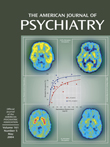Dr. Serby Replies
To the Editor: A preliminary study should be conservative in its conclusions. However, Dr. Freudenreich et al. join other colleagues who have drawn more global or universal conclusions. These have included 1) always linking “emotion” to “a triggering situation,” as described in cognitive therapy; 2) abandoning the term “affect”; 3) abandoning the term “mood”; and 4) replacing both terms as a waste of time. Their letter condemns psychiatric training, clinical practice, and particularly the DSM diagnostic system.
A more productive approach would be to achieve a truly consistent definition of terms. As suggested in my report, I believe “affect” and “mood” describe different aspects of emotional tone and can provide a clinically relevant portrait. Indeed, trainees who learn to identify these facets of the mental state should be able to use the DSM productively, i.e., translating their examination findings into “a descriptive psychopathology of clinical syndromes.” It may be that the only structure that could meaningfully examine this problem and contribute to its resolution is the DSM review process.



